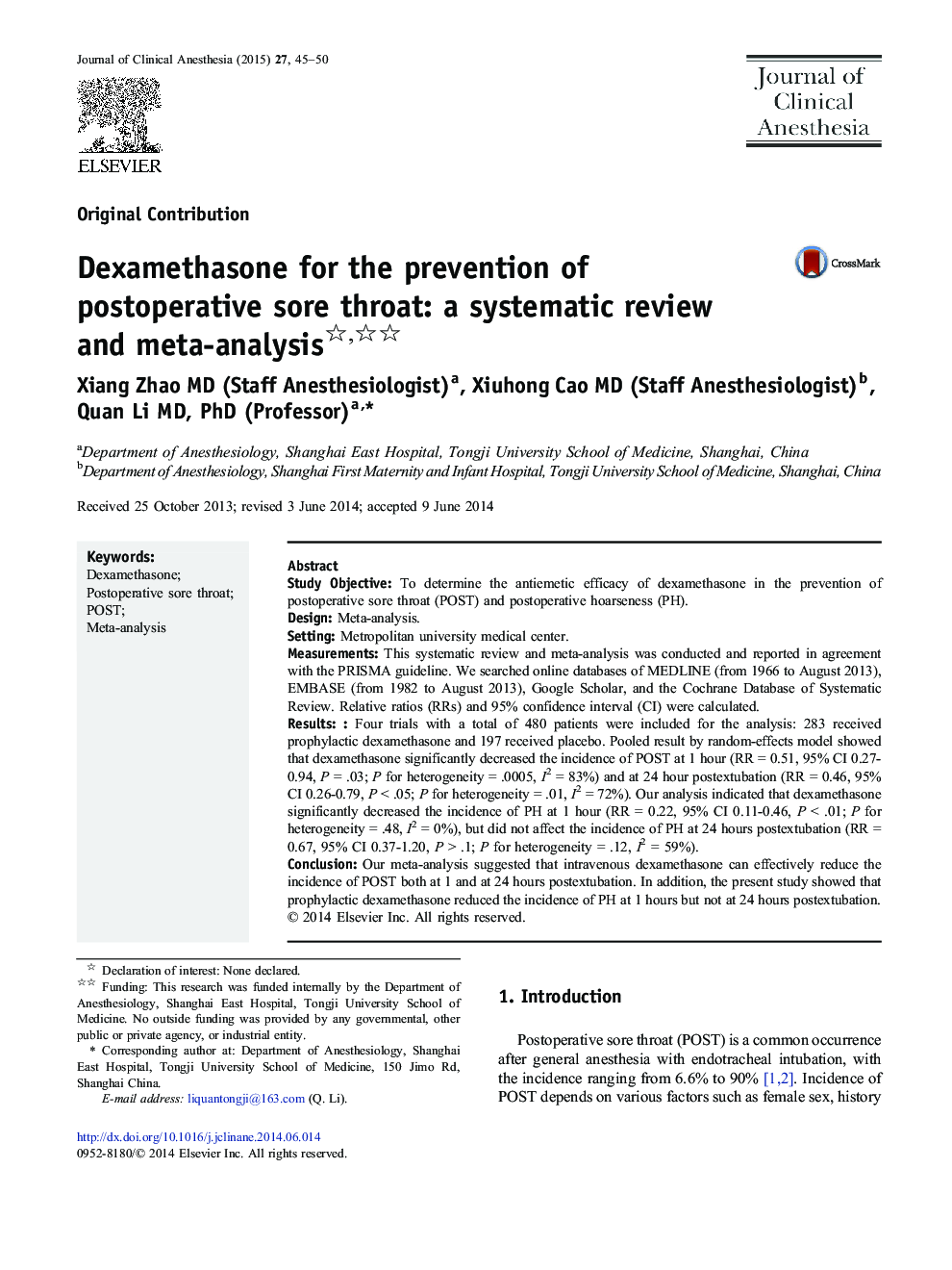| Article ID | Journal | Published Year | Pages | File Type |
|---|---|---|---|---|
| 2762250 | Journal of Clinical Anesthesia | 2015 | 6 Pages |
Study ObjectiveTo determine the antiemetic efficacy of dexamethasone in the prevention of postoperative sore throat (POST) and postoperative hoarseness (PH).DesignMeta-analysis.SettingMetropolitan university medical center.MeasurementsThis systematic review and meta-analysis was conducted and reported in agreement with the PRISMA guideline. We searched online databases of MEDLINE (from 1966 to August 2013), EMBASE (from 1982 to August 2013), Google Scholar, and the Cochrane Database of Systematic Review. Relative ratios (RRs) and 95% confidence interval (CI) were calculated.ResultsFour trials with a total of 480 patients were included for the analysis: 283 received prophylactic dexamethasone and 197 received placebo. Pooled result by random-effects model showed that dexamethasone significantly decreased the incidence of POST at 1 hour (RR = 0.51, 95% CI 0.27-0.94, P = .03; P for heterogeneity = .0005, I2 = 83%) and at 24 hour postextubation (RR = 0.46, 95% CI 0.26-0.79, P < .05; P for heterogeneity = .01, I2 = 72%). Our analysis indicated that dexamethasone significantly decreased the incidence of PH at 1 hour (RR = 0.22, 95% CI 0.11-0.46, P < .01; P for heterogeneity = .48, I2 = 0%), but did not affect the incidence of PH at 24 hours postextubation (RR = 0.67, 95% CI 0.37-1.20, P > .1; P for heterogeneity = .12, I2 = 59%).ConclusionOur meta-analysis suggested that intravenous dexamethasone can effectively reduce the incidence of POST both at 1 and at 24 hours postextubation. In addition, the present study showed that prophylactic dexamethasone reduced the incidence of PH at 1 hours but not at 24 hours postextubation.
